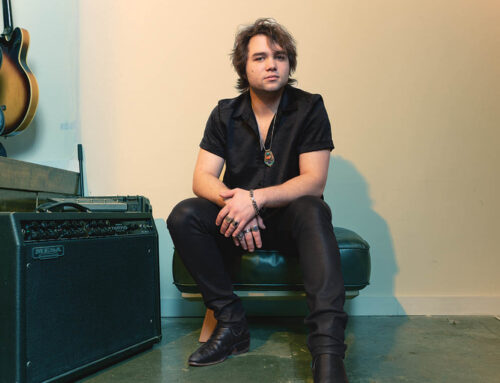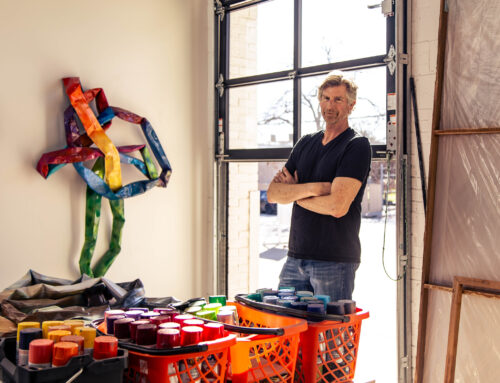NAHARIYA, ISRAEL, AND PRESTON Hollow – what do they have in common?
Most of us have no idea where Nahariya is. When we think Israel, we think of Jerusalem and Tel Aviv – names of towns we hear on the news, towns repeatedly rocked by violence.
Nahariya is just a few miles south of the Israel-Lebanon border. Despite the city’s distance from central Israel and the volatile West Bank, it’s no stranger to terror. In September 2001, and Arab Israeli suicide bomber killed three and wounded more than 90 in Nahariya’s train station. In nearby Haifa, more than 60 people have been killed in five separate terrorist attacks since December 2001.
Late last year, Lebanese terrorist group Hezbollah repeatedly attacked the area around Nahariya, leaving a 16-year-old boy dead, others wounded, and many places damaged by mortar shells, missiles and rockets.
So what does any of this have to do with Preston Hollow? It underscores the courage of a handful of neighborhood residents who, in the last year and a half, traveled to Nahariya to take part in a program organized by the Jewish Federation of Greater Dallas called Emergency Response Group (ERG).
These men – Jorge Cheirif, Ed Goodman, Jerry Grodin, Russell Silverstein and Marc Unterberg – are five of 14 Jewish doctors from Dallas who spent a week working with the staff at the Western Galilee Hospital, training in emergency response to biological and chemical warfare. Should Israel experience a united attack from neighboring countries, the doctors would leave for Nahariya within 72 hours, replacing the hospital’s physicians, who would be called to the front.
Says Silverstein of his reasons for going: “I felt compelled to fulfill my obligation both as a Jew and as an American citizen. I just wanted to do something for the state of Israel and my country.”
Once there, the doctors stayed with the families of hospital employees, and experience they treasured.
“It was fantastic, like living as an Israeli for a week,” Cheirif says. “There was an instant click [with our host family] – we went on long walks and went out to dinner every night. We just became very good friends.”
Goodman, who traveled to Israel twice, in October 2002 and June 2003, had a similar experience.
“I was made to feel so comfortable by my hosts that I wanted to return as soon as possible,” he says.
In fact, many of the Israeli doctors and their families couldn’t believe the Americans had come, given the current political situation and resulting violence.
“The staff of the hospital and their families treated us like royalty. They continuously referred to our courage, yet they are the ones who live in constant jeopardy,” Goodman says.
“The hospital has been attacked by Katusha rockets from the Hezbollah. Yet they continue to do their job of treating patients, most of whom are local Arabs. Indeed, the hospital cares for all victims of illness and violence regardless of their race or religion.”
The doctors point out how lack of tourism has taken a toll on the country.
“[The terrorists’] goal is to destroy the Jewish state by any means possible; that includes economic means, and they have been very successful in reducing tourism,” Goodman says.
Echoes Silverstein: “There are very few non-Israelis touring the area. People would come up and thank you for coming.”
The doctors say they were struck by how well the citizens are dealing with the stresses of living in a nation constantly on alert.
“I think that people are scared, but you can’t see it. Everyone goes about and lives their life as normally as possible,” Silverstein says.
Unterberg, a psychiatrist, says he thinks Israeli citizens are living in “healthy denial” of the situation, adding that when his college-age son, who went with him, asked their host about it, the man’s response was: “A coward dies a thousand deaths; a hero only once.”
But Cheirif, who has been to Israel five or six times over the course of many years, says he noticed a deeper undercurrent of fear and apathy among the citizens in this last visit.
“Something has happened to psyche of the Israeli community,” he insists. “The last time I was in Israel was 10 years ago, and back then the peace camp was very big. A lot of people were hopeful that the Palestinians were sincerely interested in moving on to peace. It was all you could hear everywhere – you went to friends’ houses, relatives’ houses, and everybody was saying peace is really going to happen.
“This time when we went, it was totally the opposite,” he continues. “People didn’t trust anymore; they’d been let down. The peace camp has become diminutive, and people are very skeptical that this is ever going to work.”
It is an opinion, he says, he unfortunately shares. He believes it’s “just a matter of time” before he will be called to leave his practice and fly to Nahariya.
“The attacks are getting worse and more dangerous, and the situation there is highly volatile” he says. “One day, there might be a massive attack or all-out war where we have to help them out. Hopefully I’m wrong, but I think it might be something that will occur in the future.”
Unterberg, however, says the experience left him feeling “optimistic.”
“What I saw in the workings of regular people in the areas of medicine and health,” he says, “were Israelis, Lebanese, Arab Israelis, all of them working together to help each other in a medical situation. It gave me a lot of hope. Now if we could just get the leaders to work in a positive way.”
All the men say the experience has left them feeling strongly about returning to Israel.
“The bombings that occur cannot be an impediment to our going back. If they were, then the terrorists would have won their war,” Goodman says.
“Naturally, we all fear for ourselves. But we are all committed to our support of our colleagues in Israel. And in the event of another attack by the Arab enemies who surround Israel, I would be honored to offer my services. I cannot think of a better way to serve than to be there.”






